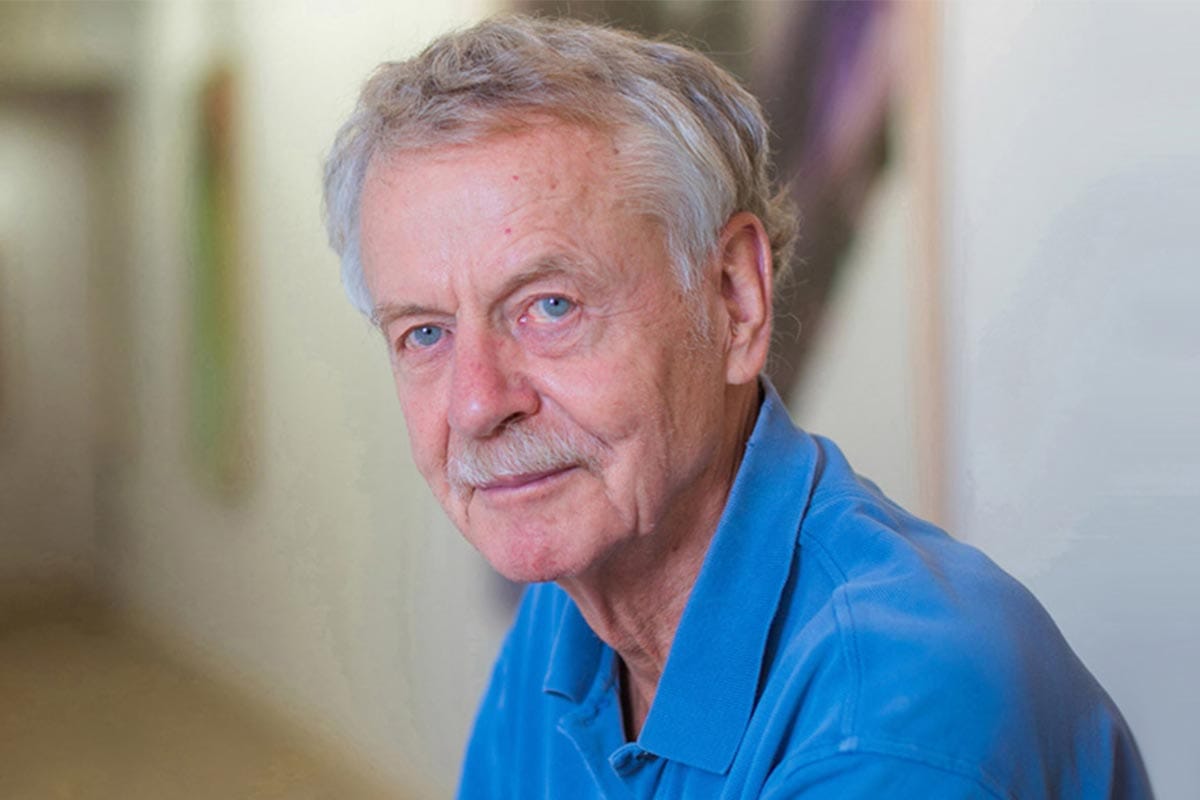
A native of Germany, Rudolf Jaenisch followed somewhat half-heartedly in the footsteps of his father and grandfather, both doctors, by pursuing studies in medicine at the University of Munich. His true passion, however, biomedical research, was ignited at the Max Planck Institute for Biochemistry.
Dr. Jaenisch’s outstanding graduate thesis focused on the increasingly important field of bacteriophage replication and expression, prepared under the tutelage of Peter Hans Hofschneider, head of one of Germany’s leading laboratories. After two years of postgraduate studies, he joined Arnold Levine at Princeton University to work with tumor viruses in mammalian systems. In the lab of Beatrice Mintz at the Fox Chase Center for Cancer Research in Philadelphia, Dr. Jaenisch learned the embryological techniques that would lead to the development of the first transgenic mice carrying foreign sequences in all tissues — an approach that has proved to be critically important to understanding cancer, neurological and connective tissue diseases, and developmental abnormalities.
Successful creation of transgenic mice by Dr. Jaenisch is considered the first proof of the feasibility of gene therapy in the intact mammalian organism. His pioneering work has helped to establish the science of DNA modification, genomic imprinting, nuclear cloning, and, most recently, stem-cell research. He is best known for his expertise in cloning mice and demonstrating the viability of gene therapy through the cloning process, work that has earned him numerous international awards and recognition.
Dr. Jaenisch’s groundbreaking work on the nature and potential treatment of cancer is highly relevant to the issues of human reproductive cloning and research on human embryonic stem cells. In recent years, Dr. Jaenisch has helped to educate the public about this controversial research through lectures and interviews.
A professor of biology at the Massachusetts Institute of Technology, Dr. Jaenisch is a founding member of the Whitehead Institute for Biomedical Research, where he established the Human Stem Cell Facility in 2005.
Awards and Accomplishments
- Max-Delbrück Medal for Molecular Medicine (2006)
- Charles Rodolphe Brupbacher Foundation Cancer Award (2003)
- Elected to the U.S. National Academy of Sciences (2003)
- Robert Koch Prize for Excellence in Scientific Achievement (2002)
- Peter Gruber Prize in Genetics (2001)
Jury Members
2007 Vilcek Prize in Biomedical Science
Claudio Basilico
Bruce Cronstein
Joan Massagué
Jan Vilcek
Related Prize Recipients
Ruth Lehmann

Angelika Amon

Peter Walter

You may also be interested in
Vilcek Foundation Awards $250,000 to Immigrants in Biomedical Science

Ruth Lehmann: “There’s always another question… there’s always more to find out”

Silvi Rouskin: “The pandemic has been an extreme cause for speed and urgency”
